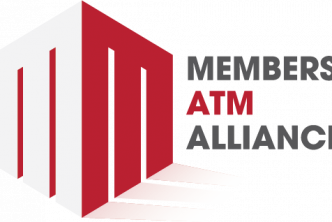CUNA Mutual Group shared a risk awareness alert regarding the Family First Coronavirus Response Act (FFCRA), which expired on Dec. 31, 2020. Eligible employers who voluntarily provide paid leave after this date will continue to receive tax credits thru March 31, 2021.
As was previously determined, the requirement to provide FFCRA leave applied only from April 1, 2020 thru Dec. 31, 2020. The FFCRA required certain employers to provide employees with paid sick leave or expanded family and medical leave for specified reasons related to COVID-19. The only relief related to this as part of Stimulus 2.0 was the continuation of the tax credits through March 31, 2021, according to the risk alert.
Credit unions may continue to offer the leave in situations where:
- the need still exists as the number of individuals unable to work or telecommute did not suddenly decrease;
- continuing to offer leave may lessen the number of individuals who contract the virus; or
- there has not a been significant financial impact with paying the out-of- pocket costs for the leave.
Some potential risks/issues with providing the continued leave include:
- The tax credit is not guaranteed. As in 2020, the IRS will determine if the FFCRA
payment qualified for the tax credit. Receiving the credit requires ensuring the
IRS requirements are met. Failure to administer the leave or being unable to
document the qualification for the credit may lead to the credit not applying. - Administering the program to receive the credit can require significant effort in
meeting numerous requirements – verifying the employees qualified for the leave,
ensuring wages don’t exceed the statutory caps or limits, tracking the leave and
maintaining documentation as well as other IRS requirements. - Possible discrimination claims if the plan isn’t detailed and followed consistently.
You may want to limit the leave to a certain class of employees such as those
that are non-exempt or shorten the time for how long you will offer the leave. - Staff shortages and work disruptions could occur depending on how many
employees use the leave. Depending on the role and ongoing projects the leave
may cause significant disruptions. You may consider offering the leave for
sickness, but not for childcare and school closures.
CMG suggests credit unions consider these mitigation tips:
• Review your credit union’s specific situation and decide whether you will
continue to offer the leave. This decision should be made quickly.
• Develop a plan including who will be eligible and for what reason. Once in place
ensure the plan is followed consistently.
• Revise leave policies as appropriate and notify employees in advance of any
leave policy changes.
• Work with Human Resources, payroll teams, and providers to implement any
changes.
• Ensure you are following all the IRS requirements for the tax credit.
• Be aware of any changes as the new administration may extend or expand paid
leave.
• Ensure you are following all state and local paid leave laws (in states where you
have branches) that may afford time away from work for COVID-19 related
reasons.
Access CUNA Mutual Group’s Protection Resource Center at cunamutual.com
for exclusive risk and compliance resources to assist with your loss control efforts. For details, contact CUNA Mutual Group’s Risk Consultants at 800.637.2676 or
riskconsultant@cunamutual.com.






